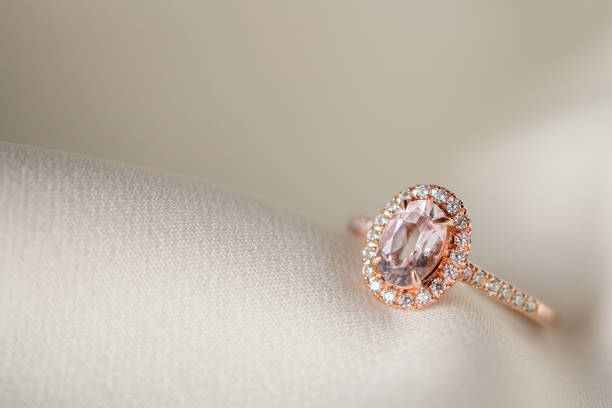Tips for Buying Certified Diamonds All Entries

When you buy a diamond, you should know several things about it instead of judging it completely by its appearance. There reason you should care is because some diamonds are natural and others are synthetic. While there's nothing wrong with owning a synthetic gem, be aware that natural gems command significantly higher value. You wouldn't want to pay the price of a natural diamond for a factory-made jewel.
Deciding on a diamond to buy for yourself or someone special requires an understanding of the measurements made by gem experts to determine value. This information is provided by a professional gemologist certified by the Gemological Institute of America (GIA) in a diamond grading report. Here are tips to help when you plan on buying certified diamonds.
1. Know the 4Cs of Diamonds Grading
- Color: determined by opinion in standard lighting environment
- Clarity: requires tools for 10x magnification
- Cut: reveals quality of craftsmanship and design
- Carat: physical weight of the diamond
2. Understand Grading Scales
A pair of gemologists use scientific grading scales to make their evaluations. The average of the two opinions becomes the score for each of the 4Cs. Color grading is based on grades D through Z, with D representing colorless (pure and most valuable,) while Z reflects color.
Clarity is based on symmetry, polish, and the number of inclusions, as "FL" is the highest grade for "completely flawless." Cut evaluations of "excellent" or "poor" are based on observations and software-based tools that measure inclusions, brightness, fire, and sparkle.
For carat weight, gemologists use a precision scale that measures to the fifth decimal place. One carat equals 0.200 grams then subdivided into 100 points. Weight matters, but is sometimes overridden by other factors.
3. Find a GIA-Certified Gemologist
The way to determine if a jeweler or gemologist is GIA-certified is the title "GIA Graduate Gemologist" or "GG" appears after the professional's name. This title is recognized by jewelers throughout the world. Ralph Mueller & Associates, for example, hires GIA-certified gemologists, which command the highest credibility in the jewelry industry.
3. Request a Diamond Grading Report
A diamond grading report issued by a gemologist tells you everything you need to know about the gem's 4Cs measurements. Studying a sample report can clarify how diamonds are graded. You need this report as proof of a professional evaluation if you eventually decide to sell it on the market.
4. Consider Your Options
Using the 4Cs will help you determine a diamond's value, but that might not be the reason you're buying it. You may simply like the appearance and its shine, which is completely your choice. Some people who buy jewelry are more concerned about the overall appearance than market value. It's still a good idea to care about market value so that you're not overpaying for a gem.
5. Insure Your Gem
Once you decide to purchase diamond jewelry, be sure to have it insured if it's something valuable. You will need to get it appraised by a professional gemologist for the item to be covered. Keep in mind, insurance companies don't always agree on jewelry value, especially if it's old and not in good condition.
6. Give Your Gem Proper Care
After you take your gemstone home, make sure you give it proper care. Be careful not to accidentally brush the diamond against objects. Soaking the diamond gently in a degreasing solution with water will help maintain its shine.
Conclusion
The more you know about diamonds, the better your gem-buying decisions will be. Contact Ralph Mueller & Associates to learn more about how to buy the right diamond that fits your needs.